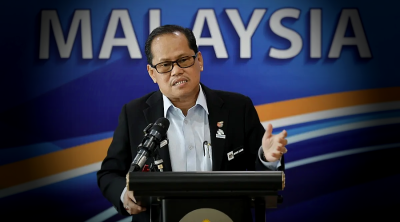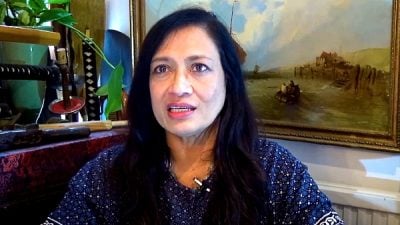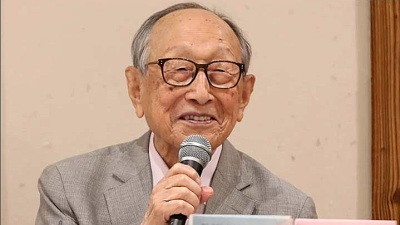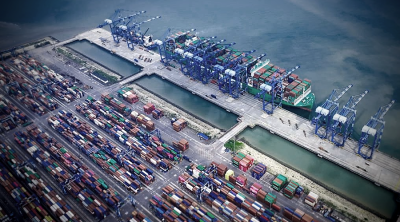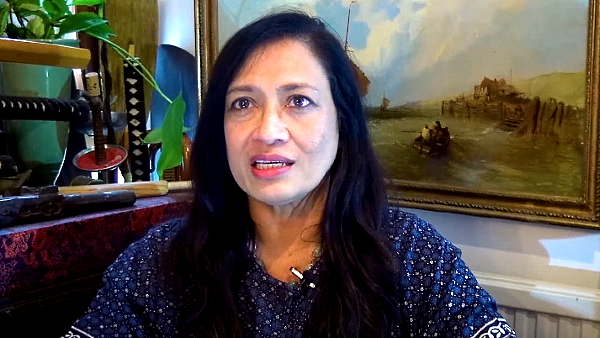
Two men, two leaders, two opposing parties. One lost his seat in GE15, the other won with an increased majority.
Those who know the history of Umno and PAS will realize that these two men go a long way.
To be exact, they or their parties locked horns in the late 1970s. The men are former PM Dr. Mahathir Mohamad and the other is Hadi Awang, the PAS president.
Dr. Mahathir, the former “giant” in Malaysian politics suffered a most humiliating defeat at GE15. He is also the former MP for Langkawi, and his exit need not have happened in such an ignominious way.
If he had only listened to his critics and friends, and perhaps to his “internal clock,” he could have retired from politics in a dignified way instead of being humiliated at GE15.
He had served his country well, although some will allege that he had also destroyed the nation with his racism, corruption and cronyism.
There are a few people who also allege that he remained in politics not necessarily to wield influence, but primarily to scupper any chance of his nemesis, the Opposition leader Anwar Ibrahim, from becoming PM.
In the end, karma finally caught up with Dr. Mahathir. He lost.
On the other hand, the politician whose influence appears to be increasing is Hadi Awang, the president of PAS.
The irony is that the rivalry between Mahathir and Hadi is four decades old.
If you think that the Malaysia of today is more intolerant than in the 1980s, just remember that this extremism did not happen overnight. The roots were established in the Iranian Revolution of 1979.
In the 1970s, Mahathir was alarmed by the Iranian Revolution and its sweep across the world. He could see that the Malays were gravitating towards PAS and abandoning Umno. The party was losing its hold on the Malays.
Umno MPs in Kedah warned Mahathir that PAS was gaining influence in the northern states. Such was the animosity between the supporters of the two parties that it was alleged that Friday prayers had to be conducted twice in some villages. One catered to the Umno crowd while the second was for the benefit of the PAS congregation.
At the same time, during the 1970s and 1980s, Mahathir was desperate to develop Malaysia quickly.
He was a man in a hurry and he ignored, or placed little importance on principles, meritocracy and transparency.
Demonstrations by students who protested to highlight the plight of poor farmers who were struggling to feed their families were quickly quashed.
In 1979, Mahathir was the Umno deputy chief and was also the deputy PM. He was aware of the implications of the Islamic revival especially in Iran, and he feared that Umno would lose Malay votes to PAS, which was re-energized by the developments in Iran.
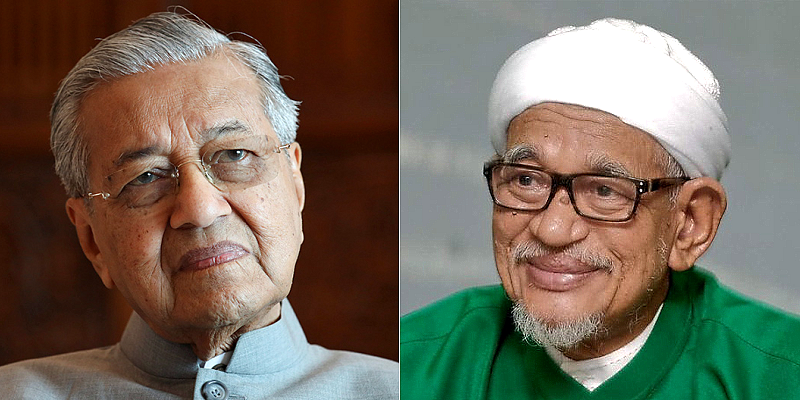
Iranians saw Ayatollah Khomeini as a hero after the authoritarian regime of the Shah of Iran. However, the creation of the Islamic Republic after the Shah went into exile overseas was followed by alienation by western nations, a drastic reduction of women’s rights, the destruction of the monarchy and Iran being ruled by religious leaders.
The hostility between Saudi Arabia and Iran (Sunnis versus Shia) began in 1979, with Malaysia trapped in between their hostilities. This tension remains till today.
Nevertheless, Wahabhi petrodollars flooded Malaysia and was used to fund religious teachings in madrasahs and mosques.
Was this the beginning of the rise of intolerance that currently plagues our country? Many social and political observers appear to think so.
For centuries, the Malays may have traded with the Arabs and Persians, as Malaya was on the trade route from India to China. The Malays have their own culture and rituals, but with the rise of Wahabhism, Malay politicians then used religion to control the Malays.
Many progressive Malays realized that the Islamization of Malaysia, the formation of authoritarian state religious authorities, coupled with the Arabization of the Malays, threatened their own Malay culture, and more importantly, the unique multicultural and multiethnic heritage of Malaya/Malaysia.
One of the consequences of the Iranian Revolution and Saudi Wahabhism is the rise of intolerance, and the oppression of women.
Today, Saudi Arabia may have relaxed its rules with respect to women’s rights, but in Iran, much conflict has been witnessed in recent months, with the death of Mahsa Amini who allegedly died in police custody.
Today, Hadi Awang has seen a meteoric rise in Malaysian politics, and buoyed by Muslim and Malay support, he has espoused anti-Chinese and anti-Christian sentiments which threaten the delicate fabric of Malaysian multiculturalism.
Under his leadership, Hadi has increased PAS’ seats to 49 and is more powerful than Bersatu, and even more devastating than Umno.
It is ironic that 43 years ago, Umno successfully thwarted PAS’ influence, as both parties were keen to dominate Malay politics and be seen as the saviors of the Malays.
PAS is not a secular party. It believes in a theocratic state.
Four decades ago, Mahathir knew that the rise of PAS had to be contained.
After prompting by his MPs in Kedah, Mahathir was forced to act, and so an ambitious student leader and young orator from ABIM was handpicked to transform Umno and make the party more appealing, in the religious sense.
After what he started 43 years ago, the tragedy today is that Mahathir has lost, while Hadi appears to be on the rise.
The bittersweet irony is that the person Mahathir hand-picked to make Umno more Islamic and acceptable to Malays, will now be tasked by 21st century anxious Malaysians to undo some of the work he initiated four decades ago.
So, can Anwar Ibrahim put Malaysia on the right track again?
Source:
- BBC: Anwar Ibrahim: A long-held dream to lead Malaysia
(Mariam Mokhtar is a Freelance Writer.)
ADVERTISEMENT
ADVERTISEMENT









